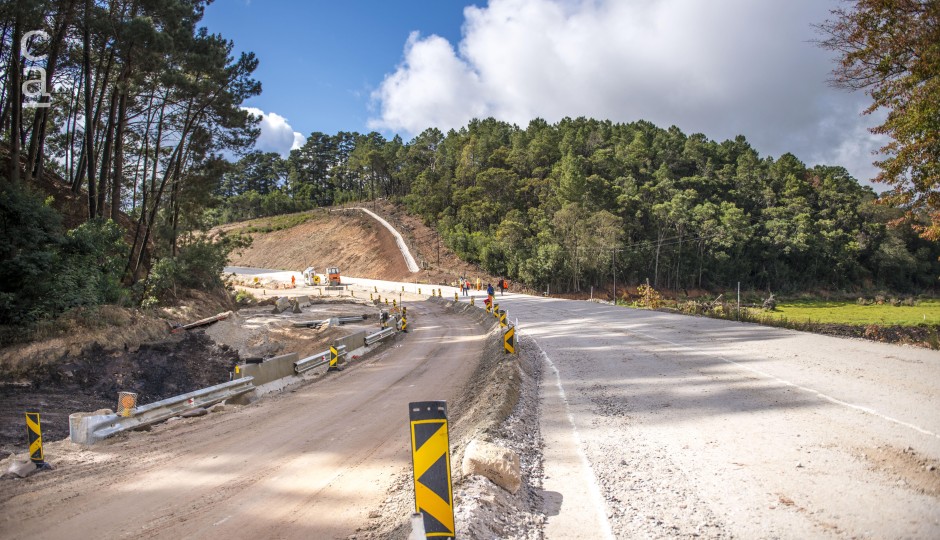Transport planning in Nigeria: the importance of public engagement
Transport Infrastructure development in Africa has been moving up the political agenda in recent years. The failure of Chinese-led projects to meet expectations has led to several experts calling for a more strategic approach to transport development in Africa.

The planning behind many of China’s major infrastructure projects have been described as “downright inadequate”. Whilst there are a range of factors (from internal to external) behind the “inadequate” planning, I want to focus specifically on the area of public engagement - a factor that I feel can have a significant impact on improving the quality of transport services, thus increasing the socioeconomic benefits derived from transport to society.
Existing engagement is inadequate
In my view, there seems to be a gap in strategic planning, and associated public engagement, between the national and local levels in Nigeria. There is no space for the public to participate in strategic, place-based discussions about where infrastructure should go; the different ways in which needs could be met; and the trade-offs that such choices will involve. National infrastructure policy in Nigeria is mostly quite abstract, with the details of implementation and the location of new infrastructure left to developers planning specific projects. After the national definitions of need, the next level down in the planning system is practically non-existent. This unfortunately leads to a poorer quality of transport services being provided to communities.
The development of the Warri-Itakpe railway line illustrates this lack of public and community engagement. The people of Owa-Oyibu, Idumuesah and Abavo communities of Ika region of Delta North expressed delight at the potential opportunities that arise from rail connectivity through the Agbor station. However, they confided that without accessible road to the railway complex in Agbor, it would be difficult to access the train services as it would be easier to board a bus going to Warri from Agbor. Also adding that the Nigeria Railway Coporation (NRC) should "kindly look into revamping the farm roads from Oyibu and Idumuesah", and help ease the movement of the potential passengers and their goods. One would have thought that such a key subject area (station access) would have been discussed at detail with community stakeholders prior to the construction of railway.
As a result of no strategic coordination between local stakeholders and national government, the railway will not be able to deliver the enhanced accessibility it hopes provide for nearby communities. However, not only is rural accessibility affected but achieving faster door-to-door journey times via rail transport becomes very difficult due to the poor station access. Fast train in-vehicle times (station to station) are nullified by the first and last mile legs to/from the railway station. This will have a substantial impact on the economic benefits expected tow be derived from travel time savings.

Interestingly, the issue of station access is not unique to the Warri-Itakpe railway line and has become a revolving problem across railway infrastructure development in Nigeria. To the extent Rotimi Amaechi (Minister of Transport) has urged all state governments to complete link roads to all railway stations in the country.
Why should the public have a say?
An elaborate public engagement strategy between relevant stakeholders (from local residents to contractors) at the project preparation stage may identify potential obstacles much earlier on. Engagement enhances public policy’s potential for learning and evolution, helping to compensate for the limits of ‘expert’ knowledge found in political institutions. On the issue of station accessibility, local stakeholders are more likely to understand the travel patterns of their communities better than civil servants in Abuja, therefore recognising and identifying key access routes to stations. This would enable the railway to widen its catchment beyond simply the immediate station area.
Deliberation also creates new opportunities to identify potential compromises, and is likely to result in better policies with a greater chance of them being more widely acceptable. The Australia Rail Track Corporation (ATRC) work closely with local communities and city councils across Australia in a structured working group process, to fully understand what the community expects from enhancement schemes and how this input can be incorporated. In the North East Victoria enhancement (Benalla railway precinct), community feedback led to another viable option proposed beside the option initially presented by ATRC.
The construction of the Lagos-Ibadan railway reportedly led to protests from the Laderin and Alagada of communities of Ogun state, regarding the state of infrastructure in their respective areas. Laderin community asked China Civil Engineering Construction Company (CCECC) to construct an overhead bridge across the rail line to connect villages in the area to the main road, the people of Alagada community have requested that the company should reconstruct the link road in the community, which has been rendered impassable by flooding. Whilst the CCECC were open to addressing the communities concerns, it was stated that as these additional works were not captured in the project plan. Appropriate approval would be needed or else it would amount to going outside the scope of the project, therefore leading to a possible sanction. I strongly believe that these type of scenarios would be avoided if a public engagement process similar that undertaken by the ATRC were implemented across infrastructure developments in Nigeria. Aside from achieving a better outcome for all parties (residents, contractors, local businesses etc), more transparency and accountability improves legitimacy of transport schemes. Poorly constructed public consultations increase the public’s suspicions about proposed projects. Sometimes resistance about new transport infrastructure may not be because people disagree with the change, but because they feel the change is being forced upon them through a process they are unable to influence.
A way forward
In my opinion, there needs to be a layer between grassroot stakeholders and the national government that can create conditions for integrated planning at a strategic level. It is important to acknowledge that whilst public engagement of some sort does indeed occur, it is mainly used to inform local residents. Effective engagement encompasses aspects of consultation, collaboration and empowerment which should result in policies that are better prepared to cater for the specific needs and preferences of the local population.
To provide that capacity, I propose the creation of an independent body to be an impartial facilitator and a well-resourced source of engagement expertise. It would have a critical role in facilitating an in-depth debate around the identification of need and strategic direction at national and sub-national level. Engagement expertise would be concentrated within the organisation and it would employ deliberative tools, constantly innovating, and using social media etc to involve different sections of society. Spanning national to local arenas, the body would be able to promote iteration between conversations at different scales, ensuring that lessons learned at the local level inform decisions at the national level and vice versa.
Lastly, in order for any strategy or recommendation to be effective, the political will must exist along with the institutional framework and funding. Ultimately, a new culture of deliberative engagement is needed within the Nigerian political system.
This article has been written by Jide Ehizele and was originally published on Linkedin. ConstructAfrica re-published the article with the author’s permission. To read the original article, please click here.

Jide Ehizele has a degree in economics, which provides a useful basis for understanding demand levels, cost and revenue structures within the railway industry. As well as skills and competencies acquired from both degree and work experience within the public and private sectors, he has subsequently gained experience of a range of railway data and systems.

